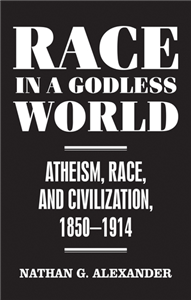Secularism, Islam and public intellectuals in contemporary France
by Nadia Kiwan
This book focuses on how Muslim intellectuals in contemporary France contribute to our understanding of the relationship between Islam, secularism and French society. Whilst most books about Islam in France tend to examine polemicized issues such as the veil or Islamist violence, this book's focus on secular Muslim intellectuals challenges polarizing accounts of Islam and Muslims. Secularism, Islam and public intellectuals in contemporary France thus departs from the 'clash of civilisations' approach and, more broadly challenges divisive claims that European 'multiculturalism' must be abandoned in order to uphold democratic principles and values. The book entails a contextualised analysis of the published works and public interventions of Abdennour Bidar, Malek Chebel, Leïla Babès, Abdelwahab Meddeb and Dounia Bouzar - intellectuals who have all received little, if any scholarly attention despite being well-known figures in France.











